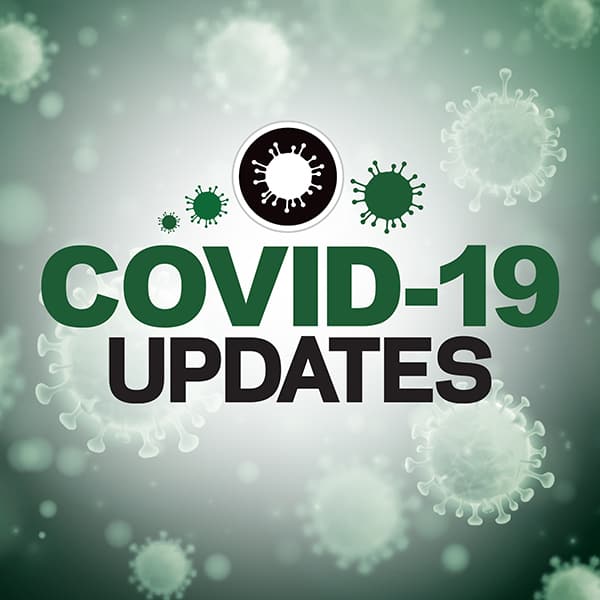By Erin Petenko/VTDigger
On Tuesday, March 29, the U.S. Food and Drug Administration announced its approval of the second booster dose of Pfizer or Moderna Covid-19 vaccines for people 50 and older and people with compromised immune systems.
That booster is now available to all eligible Vermonters, according to Vermont Department of Health spokesperson Ben Truman. But there have been several changes since the first booster dose was rolled out last year.
Vermont has wound down most of its state-run vaccine clinics, instead telling Vermonters to get vaccinated at pharmacies and doctor’s offices. There’s also new evidence to consider about the effectiveness of the second booster and who should receive it.
Which dose is this, exactly?
For most Vermonters, a second Pfizer or Moderna booster would be the fourth dose they’ve received. The first and second doses, received about three to four weeks apart, complete the initial vaccine course — a.k.a. “fully vaccinated.” After that, Pfizer or Moderna recipients became eligible for one booster shot five months later. Now, the FDA has approved a second booster shot at least four months after the first booster shot.
The exception is people who got the Johnson & Johnson vaccine, which only requires one dose for the initial course, then a booster two months later. Those patients can opt to get the Pfizer or Moderna booster even if they received Johnson & Johnson first, according to the health department.
Immunocompromised Vermonters are also eligible for an “additional dose” after their initial vaccine course and before their booster shot, according to the health department.
Where can I get it?
There are three options for finding a Covid vaccine: doctor’s offices, pharmacies and state-run clinics. There’s no centralized database of doctor’s offices that carry the vaccine. The health department encourages Vermonters to reach out to “your health care provider.”
You can search for a pharmacy that provides vaccinations through vaccines.gov, a federal website. Among the pharmacy chains in Vermont with vaccine availability are Kinney Drugs, Walgreens and Rite-Aid, according to the site.
The handful of remaining state clinics are walk-in only, with no appointments required. The health department has a list of those clinics on its website: healthvermont.gov/covid-19/vaccine.
Is it worth it to get the second booster dose?
In its approval of the second booster shot, the U.S. Centers for Disease Control and Prevention said that people 50 and older were eligible to get the shot, but the agency stopped short of actually recommending it.
Tim Lahey, an infectious disease physician at the University of Vermont Medical Center, said he is “most convinced that people who are immunocompromised (or) over 60 can benefit from getting a fourth shot.”
For others, it’s more complicated. “It’s a little more discretionary if you’re in your 50s,” he said. “It probably depends on what your what your medical conditions are, what medicines you’re taking, or your personal sense of what your approach is” toward the risk of contracting Covid. Research showed clear evidence that the first booster dose limited the risk of infection, hospitalization and death, Lahey said.
For the second booster, the strongest research suggests that it protects people 60 and older against hospitalization, but studies have not confirmed significant protection against severe disease for people younger than 60. Lahey said he is waiting for more data to come out of Israel, an early adopter of the fourth dose.
He recommended that people who are on the fence about getting the second booster talk to their health care provider to have a more nuanced conversation about their risk level from Covid and their individual benefits from getting the next dose.
If I got Johnson & Johnson, should I get Pfizer or Moderna now?
After a wave of early evidence that the Johnson & Johnson vaccine was not as effective as Pfizer or Moderna, which are both mRNA vaccines, the federal government approved people choosing a different type of vaccine for their booster shot.
That means that if you got the one dose of Johnson & Johnson, you can get Pfizer or Moderna as your booster shot. Or, if you got the initial dose and the booster dose of Johnson & Johnson, you can now opt to get Pfizer or Moderna as your second booster dose.
Lahey said the Johnson & Johnson vaccine is still considered very effective at preventing hospitalization and death. Now that mRNA vaccines are less effective against preventing infection in the latest variants, the differences between the vaccines are a “little subtler,” he said.
At the same time, there’s some evidence that mixing and matching vaccines can bolster your immune response. Lahey said if he had gotten Johnson & Johnson as his initial vaccine, he would opt for an mRNA vaccine now.
“There’s so many combinations that it’s gonna take a long time” to get precise answers on which one to get when, Lahey said. It may also take a while to figure out how often the general public will need to get boosters, and what kind they’ll need. “The unanswered question is, how many shots do you need?” he said.
“I suspect that’s going to get folded into this as-yet-unanswered question of whether the virus is going to mutate enough so that we need yearly boosters.”




